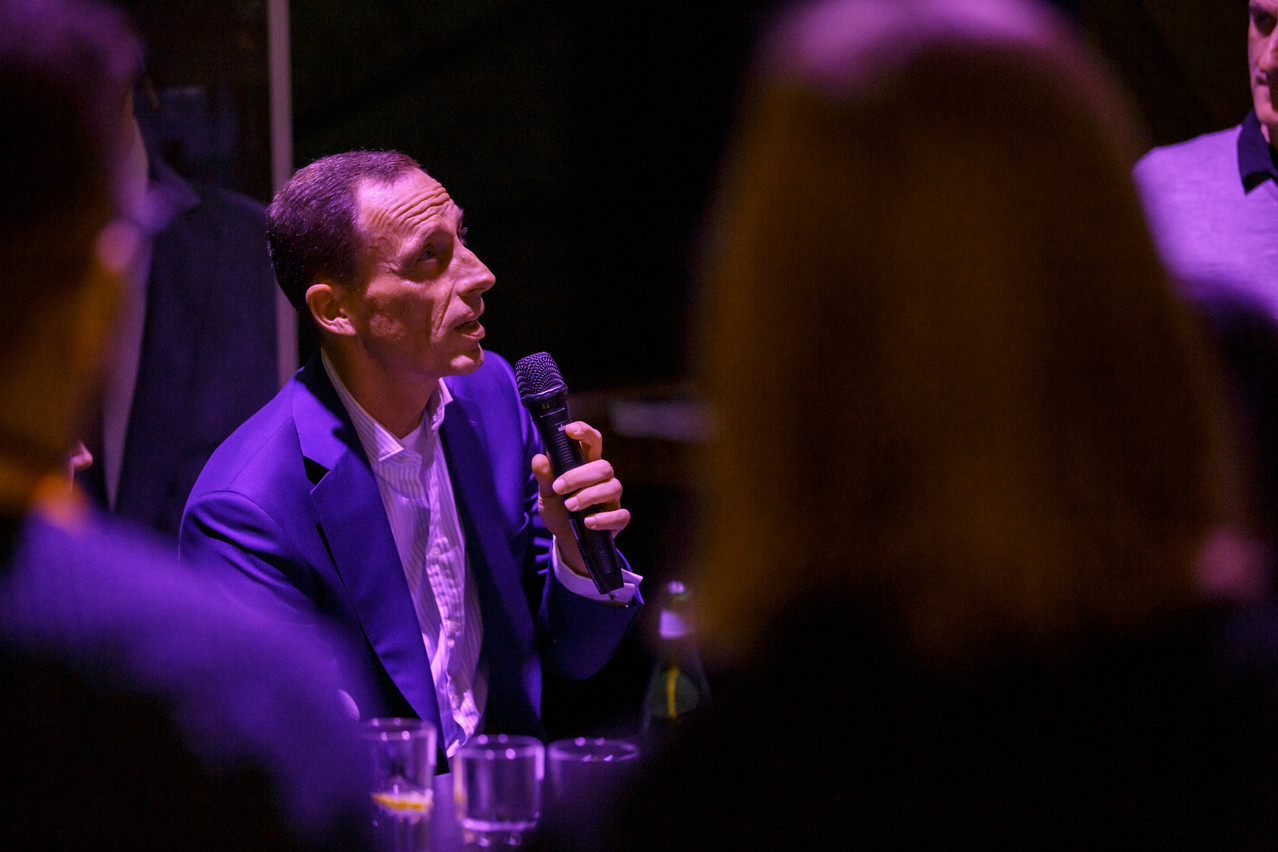From 1 July the US-based university’s campus in Luxembourg ceased to operate as a stand-alone entity and face-to-face courses will no longer be offered in the grand duchy. Students and professors were taken aback by the sudden announcement. Muller was part of those who made effort to find a solution for the former SHULU students to finish their studies. The HEC Liège business school will now be offering an International MBA taught in English in Luxembourg from 2022 in collaboration with the Chamber of Commerce. However, that project did not include the SHU team. Despite a shaky end of the academic year, Muller remains focused on his goal: to impact people’s lives through business transformation.
We were left with the idea that when Sacred Heart University dramatically changed its mind shut up shop in Luxembourg, you started trying to find a solution with HEC Liège until the Chamber of Commerce announced the launch of an MBA in which you no longer seem to be involved.
Marcus Muller: Yes, we started the movement with HEC Liège so that our students could finish their MBA in good conditions before we realised that our approach and that of the Chamber of Commerce--which has constraints in terms of control, risk management and procedures--were not aligned.
So, after 10 years in Luxembourg, what are you going to do?
I will continue to question the 'role' of a business school. In my opinion, it is not a matter of teaching yesterday's knowledge to entrepreneurs who are faced with new challenges, whether climatic or technological.
For a leader or an entrepreneur, having empirical knowledge is not necessarily a bad thing, however.
A business school should be concerned with nurturing connections in the brains of these entrepreneurs, getting them to think differently. Theory without practice, like practice without theory, is meaningless. Many business schools train on the basis of theories that are 50 to 100 years old, or, like Harvard, MIT or Stanford, live on [the reputation of] their brands, and as soon as they do something, everyone says it's great.
Read also
You surely don't believe that these big players are all wrong, and you are right, do you?
It's not that they are right or wrong. I am convinced that we will have to pay more attention to social sciences, which will lead to new economic models and a key capacity, the capacity to adapt to issues such as climate or digital transformation. Business is not an end in itself, as the neo-liberalist approach has been harping on for years, but a means to an end, and that end must be to put on to market products and services that people need and want in the face of the challenges they face. In the training we had set up, for example, we had a course that was unique in the world, consisting of eight disciplines in one course!
At the rate of technological development, the question of professional training and continuing education will become central. Is there a race for the 'Luxembourg MBA'? And does it make sense?
Provided that it is accepted that these MBAs should be dedicated to training entrepreneurs who will do good for society, yes! Luxembourg could play a very interesting role because it has the two biggest ingredients in this field: capital and brains. An MBA should be at the forefront of the changes to come and propose models that will be followed in China, America and Africa.
People naturally have what it takes to invest in a company, but they have three needs: to feel autonomous, competent and in the right place.
And how should Luxembourg play this role? It's easier to set up an agreement with HEC, for example.
By backing a business school with the University, where many things are going well. Because having the university and the state and their networks to feed this training makes particular sense. It would facilitate things and contribute to nation branding, which would attract graduate students to Luxembourg, where the economy needs talent, with the support of the foreign affairs ministry, to facilitate the issue of visas. If everyone pulled in the same direction, it would be a fantastic project.
How long do you think it would take to be put on track, given that next year's election year may disrupt this kind of idea?
When we started talking to HEC Liège in May, we already had a 'plug and play' model ready in August. In a private setting, 90% of the speakers in the programme were senior executives from different industries. If we move to a more academic model, it takes a little longer to balance the speakers and have more academics. But it doesn't take a year to set this up.
Is running this business school a role you see yourself in?
You know, in 2008 I was in London, in private equity. After some maturation, I thought I wanted to make an impact. I left the world of finance and went to Australia to do a PhD in organisational psychology and then a master's in business administration. I have worked for a number of companies and organisations since I arrived in Luxembourg, from Luxinnovation to Luxair, through the Brasserie Nationale, SnT, Luxaviation, Proximus or Champ.
I could create a company, but I want to stay in business development. This month I am publishing a book in Montreal with four researchers entitled 'Unleashing Motivation', in which we explain that people naturally have what it takes to invest in a company, but they have three needs: to feel autonomous, competent and in the right place. Nothing beats that. I've also just finished another book, 'The ABC of life: an evolutionary approach to success', about success, but also about how sustainable innovation can bring value. That's what I'm interested in: adding value.
This story was first published in French on . It has been translated and edited for Delano.

